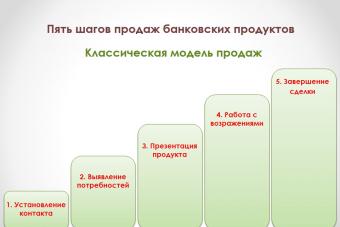Nausea, dizziness, weakness - this is the triad that, unfortunately, many have to deal with.
These complaints can be disturbing very often, or - occasionally, or - with some periodicity, but ailments accompanied by severe weakness, dizziness and nausea can be caused by many reasons that are sometimes difficult to immediately determine in order to take treatment measures.
Currently, there are more than eighty serious diseases that are accompanied by these symptoms. But in and of themselves, nausea and dizziness can be a response to food poisoning, intoxication with any harmful substances, stress, fatigue, lack of proper nutrition, rest and sleep, in particular.
It is not always possible to independently understand the causes of constant weakness with dizziness and nausea. It is imperative to consult a specialist in order not to aggravate the condition and avoid complications if a serious illness is detected during the examination.
There can be many reasons. The most common, apart from pregnancy, food poisoning and poisoning with any harmful gases and substances, are:
Nausea and dizziness: causes - vegetovascular dystonia
It could be sent to the same row where we are talking about pregnancy, poisoning, overwork, beriberi, etc., since this is the first diagnosis that you can think of when you hear complaints of weakness, dizziness and nausea (if the patient is sure that he is not pregnant, is not poisoned and is not at all overworked).
Vegetovascular dystonia (VVD) has such a variety of manifestations and is accompanied by so many complaints (in the absence of expressed objective data) that now this diagnosis is made for both children and adults, and even very adults, i.e., the elderly. Although, until recently, VVD was not a diagnosis. This is a symptom complex that was observed in children and adolescents during the period of active growth of the body and was accompanied by nausea and dizziness, constant weakness. At the same time, no serious pathology from the internal organs and systems was detected. Also, young "nervous" impressionable women, people of art, etc. suffered from this.
But due to the increased pace of life, stress, overload, lack of sleep, lack of proper rest and diet, the vessels in both children and adults have become so labile that the reaction of the body, and, in particular, the peripheral nervous system and blood vessels, to all these external irritants
is unpredictable. Blood pressure rises or falls sharply, sweating, weakness, dizziness, nausea, "darkening" or flickering of "flies" appear before the eyes. Such a condition without treatment and, accordingly, rest, can last for a long time - permanently. There may be sudden deterioration - crises that require emergency care.
In all cases, if you are worried about constant nausea, dizziness and weakness, you need to consult a doctor to clarify the diagnosis and, in addition to the prescribed treatment, exclude all causes that cause this condition.
As a rule, by normalizing lifestyle and nutrition, giving up, no matter how trite it sounds, bad habits (smoking and alcohol greatly affect vascular tone, aggravating the pathological condition), adding physical activity, you can get rid of the painful symptoms of vegetovascular dystonia. Treatment, which is prescribed in courses, includes the use of vascular drugs, adaptogens, nootropics, if necessary, antihypertensive and trophic-improving ones.
Nausea and dizziness: causes - osteochondrosis
Also, it would seem, an “on-duty” diagnosis, which is often made if there are complaints of nausea and dizziness, general weakness, but there are no obvious signs of any disease. Osteochondrosis is often underestimated. Studies have shown that even preschool children suffer from osteochondrosis. It has long ceased to be the prerogative of the elderly and has become much “younger”. It is with cervical osteochondrosis that its first manifestations can be nausea, dizziness and weakness. Later, as it develops, fatigue appears, “half-fainting” states, excruciating headaches that may be accompanied by vomiting, severe pain in the cervical spine, up to the point that the whole body has to turn.
Osteochondrosis is a degenerative-dystrophic change in the intervertebral cartilage that progresses with age.
Nausea and dizziness, general weakness, as manifestations of cervical osteochondrosis in the early stages, are associated with changes in the vessels.
At the beginning of the disease, it can be suspended, saving yourself from painful manifestations in the future. But for this you need to accurately verify the diagnosis by contacting a specialist, and, if necessary, undergo some examinations: an x-ray of the cervical spine, MRI (magnetic resonance imaging), CT (computed tomography).
So nausea and dizziness, as well as weakness, which is often caused by osteochondrosis, require a doctor's consultation and serious treatment in the future. Treatment should be comprehensive: physiotherapy (massages, physiotherapy, swimming, reflexology, electrophoresis, phonophoresis), medication (vascular preparations, vitamins and microelements, chondroprotectors), a balanced diet.
Nausea, weakness and dizziness: causes - vertigo
The triad of nausea, dizziness and weakness is a manifestation of the vertigo syndrome: in Latin it means "to rotate". Vertigo, depending on the level of damage, is peripheral (occurs in the vestibular apparatus, organs of vision) and central (nerve centers are affected).
The peripheral form of vertigo is associated with damage to peripheral organs (inner ear), manifests itself acutely, lasts from several minutes to several days, symptoms of nausea, dizziness and weakness are pronounced. Blood pressure may also decrease, hearing is disturbed, vomiting and sweating may appear.
With the central form of vertigo, the clinic is less pronounced. Nausea, dizziness and weakness are almost constant. The cause may be a violation of cerebral circulation, brain tumors, multiple sclerosis, trauma, epilepsy, migraine.
Nausea and dizziness: causes - anemia and hypotension
Anemia and low blood pressure can cause nausea, dizziness, and weakness. It is also necessary to consult a doctor here, because. to clarify the diagnosis of anemia, which also has several types, a blood test is necessary.
With anemia, you can not self-medicate. It, in turn, can be an independent disease, or a manifestation of some other, even more serious disease.
In this case, the identified underlying disease is treated, as a result of which anemia and hypotension occurred.
Nausea and dizziness: causes - diseases of the cardiovascular system
Diseases of the cardiovascular systems are also accompanied by nausea and dizziness. The cause is coronary heart disease with rhythm disturbances, hypertension. Treatment should be carried out exclusively under the supervision of a physician or cardiologist.
Nausea and dizziness: causes - endocrine diseases
cause weakness, dizziness and nausea. This is hypoglycemia in diabetes mellitus (i.e., a sharp decrease in blood glucose), and metabolic disorders in hyper- or hypothyroidism. Examination and treatment are prescribed by an endocrinologist, which takes a long time.
Nausea, weakness and dizziness: causes - sunstroke, heatstroke, overheating
These are pathological conditions in which the main manifestations are nausea, dizziness, weakness, often - vomiting, sweating, palpitations.
Nausea and dizziness: causes - traumatic brain injury
A concussion is accompanied by nausea, dizziness, weakness. These clinical manifestations are at the same time diagnostic criteria when examining a patient.
You can list many more reasons that cause nausea and dizziness.
These include, for example, old age (degenerative changes occur in the structures of the brain, cranial nerves, blood vessels, etc.); menopause, pregnancy (hormonal disorders occur); taking certain medications (side effects in the form of nausea, dizziness and weakness are often found in anticonvulsants, antibacterials, antihypertensives and many others).
But no matter what causes nausea, dizziness and weakness, you should not self-medicate.
It is necessary to immediately consult a doctor and treat the underlying disease, and not individual symptoms. Only in this case, the treatment will be successful.
women experience dizziness, nausea, vomiting, weakness and lethargy much more often than men. There are several reasons for this. Is it always necessary to see a doctor about this? If such symptoms recur frequently, it should not be ignored and attributed to overwork and lack of sleep.
Causes of dizziness, nausea, vomiting and weakness in women
- Hormonal disbalance.
- Oxygen starvation of brain tissues.
- orthostatic collapse.
- Hypoglycemia and anemia.
- Poisoning.
- Spinal injury.
- Stroke.
Such diseases are characterized by the sudden onset of all symptoms, dizziness, nausea, vomiting and weakness. A woman at such moments experiences strong excitement, which can worsen her condition. Therefore, in the event of dizziness and weakness, first of all, you need to pull yourself together.
Hormonal disbalance
There is a certain balance of hormones in the body. Its violation leads to serious consequences. If you do not restore the required amount of these substances, then there may be significant disruptions in the work of all organs and systems.
Self-balancing hormones impossible, it is necessary to take tests that will show the hormonal background of a woman, and only after that the doctor will prescribe treatment. The course of taking drugs can be very long, up to several years, and sometimes takes only 2-3 weeks.
Causes:

In addition to dizziness, nausea, and vomiting, a woman may experience other symptoms that indicate hormonal imbalance. Suspecting a violation of the level of hormones is quite simple, because such signs cannot be overlooked.
Signs of a hormonal imbalance:
- sudden change of mood.
- Increasing body mass.
- permanent feeling tired and sleepless.
- Dizziness, nausea and vomiting.
- head pain.
- Absence sexual attraction.
- Appearance acne on the body and face.
Oxygen starvation of brain tissue
Oxygen starvation of the brain can occur for several reasons. The signs of this condition and their severity make it possible to understand how serious and difficult the process of the disease is.
Causes:
- bad blood circulation of the meninges.
- shock states.
- crashes in the work of the cardiovascular system.
- Poisoning chemicals.
- Flaw oxygen in the air.
To make a final diagnosis, the doctor needs to know all the signs of the disease, and in addition, a number of diagnostic procedures. This condition is very dangerous for a woman and requires immediate medical attention.
 Signs:
Signs:
- Dizziness, nausea and vomiting.
- increased frequency pulse and respiration.
- Pale skin covers.
- Cold perspiration on the face, arms and legs.
In the early stages of the disease, there are minor symptoms of oxygen starvation of the brain, but the stronger the disease develops, the more organs are affected, and vital processes are disrupted.
In the acute stage, the disease cannot be overlooked. The woman is hospitalized and the necessary treatment is carried out, and in addition to the general signs of the disease, very severe symptoms join.
orthostatic collapse
This disease is a jump in blood pressure, down. This happens due to a sharp change in the position of the woman, with a quick rise from the bed, or, conversely, if the woman quickly lay down. Prolonged stay in one position can also cause an increase in symptoms of the disease.
Causes:

The disease is classified according to the duration of symptoms and is divided into several stages, mild, moderate and severe. Depending on the stage of the disease, the doctor prescribes treatment.
Most often, this disease affects young women seeking to quickly lose weight. To achieve the effect of losing weight as soon as possible, girls take diuretics and laxatives, which is fraught with pronounced signs of this disease.
Signs:
- Dizziness, nausea, vomiting.
- Fainting.
- Noise in ears.
- Hearing loss.
- Darkening in the eyes.
- Thirst.
- Weakness in the limbs.
The main danger of such conditions are fainting. Losing consciousness, a woman can seriously injure herself when falling. When making such a diagnosis, the specialist will explain to the patient how to behave during an attack. Certain exercises and medications can reduce the frequency of seizures or get rid of them completely.
Hypoglycemia and anemia
Decreased blood sugar levels are called hypoglycemia. A decrease in hemoglobin levels is called anemia. These two diseases can manifest themselves in the same way. Both conditions are quite dangerous for a woman. Anemia affects a large number of the fairer sex.
This is due to monthly menstruation, especially if they are plentiful. The symptoms of both diseases are similar, dizziness, nausea and vomiting.
Causes of glycemia:
- Diabetes.
- Dehydration.
- Wrong diet.
- Alcoholism.
- Constant fatigue.
- Hormonal disbalance.
- Failure of the heart, liver and kidneys.
Causes of anemia:
- Long menstruation and some gynecological diseases.
- Bleeding any character.
- Increased the need for hemoglobin.
- bad absorption of iron by the body.
To clarify the exact diagnosis, a number of laboratory blood tests are needed. Women, turning to a specialist, should describe their condition in detail. Treatment of these ailments may take several months and in severe cases up to several years.
Poisoning
signs poisoning familiar to everyone is dizziness, nausea and vomiting. The causes of this condition may be various foods or chemicals. It is quite possible to cure the disease on your own if it manifests itself in a mild form. Sometimes a woman needs hospitalization.
Spinal injuries
Every woman, in the event of dizziness, nausea and vomiting, will first of all think about the cause of this condition. If there have been injuries and injuries of the spine recently, it becomes clear what influenced the presence of such unpleasant symptoms.
Spinal injury can be very dangerous, if you experience dizziness, nausea and vomiting, you should immediately contact a medical facility.
Stroke
This disease is deadly. In the early stages, doctors can help a sick person recover as much as possible, so at the first sign of an illness, it is better to immediately call an ambulance.
Causes:
- emergence thrombi in small vessels.
- Gap vessel walls and cerebral hemorrhage.
Women are more susceptible to this disease late age than men, but nowadays, and young people are victims of stroke. In order to protect yourself from such a terrible disease, you need to undergo medical examinations regularly and be less nervous.
Signs:
- Dizziness, nausea and vomiting.
- Depression and loss of consciousness.
- Headache.
- Increased respiration.
Women who constantly consume alcohol and cigarettes are directly susceptible to strokes. In addition, excess body weight also contributes to the destruction of the walls of blood vessels. Diabetics and women with diseases of the cardiovascular system are constantly at risk for a disease such as stroke.
In addition to the main diseases, the symptoms of which can be dizziness, nausea and vomiting, there are more rare ailments and deadly ones. Only doctors able to identify the true cause of such conditions, therefore, medical examinations cannot be neglected.
Ask your doctor about your situation
Drowsiness and lethargy in women
The state of lethargy and drowsiness appears for a number of reasons. Basically, a woman with such symptoms simply overtired and did not get enough sleep, but if this condition lasts a long time and practically does not go away, you should consult a doctor.
Causes:

In the event that a woman, except for drowsiness and lethargy, is not bothered by anything, there is no reason for alarm. You just need relax and sleep. If, however, more severe conditions are added to these symptoms, a medical examination is indispensable.
People tend to overeat. Women love to eat delicious, to which their body reacts with drowsiness and lethargy.
Pregnancy
Feelings of dizziness, nausea, vomiting, drowsiness and lethargy are common to almost all pregnant women. This state of change is to blame hormonal background. In the first months of pregnancy, these unpleasant symptoms are especially acute, when the body is just beginning to rebuild.
If dizziness and other ailments disturb a woman in a position very much, making it difficult to sleep and eat, then you can consult a personal gynecologist. The doctor will conduct an examination, all diagnostic measures and decide how to alleviate the suffering of the expectant mother.
What to do if you feel dizzy
An attack of dizziness can cause panic in a woman:
- With severe dizziness First you need to calm down, because this condition is not fatal.
- Lighten it up a bit the feeling can be leaning your head against a hard surface, but it is better to lie down.
- Feeling dizzy it is better not to close your eyes, this can exacerbate the symptom.
- A look is necessary focus on one object or place, so it is easier to endure this ailment.
- indoor air where the vertigo sufferer is located must be fresh, so the windows must be opened. In addition, a sedative, preferably of plant origin, can get rid of this condition.
- If dizziness is not passes, despite all efforts, but only intensifies, you need to call an ambulance.
Diagnostics
Today, there are many methods for diagnosing dizziness. To find out the exact cause of dizziness, you need a comprehensive examination. Videonystagmography, videooculography and devices that study the vestibular apparatus are able to most accurately determine why dizziness haunts a woman all the time.
If the culprit of this condition is the spine, then this will perfectly reveal MRI and CT. Some laboratory tests will show the cause of dizziness if it is caused by viruses and infections.
Treatment for dizziness
Treat dizziness as a separate disease, it is forbidden. If this symptom is very painful, you can temporarily alleviate the patient's condition. To begin with, it is worth finding out the cause of dizziness, and only then proceed with treatment.
It is impossible to independently determine why the head is spinning. It is better to leave all guesses and conjectures and contact a medical institution.
There are special drugs, helping to relieve this unpleasant symptom, but their intake is possible only as directed by a doctor. Folk methods can also reduce dizziness, although their effectiveness is quite low.
The balance of the human body is provided by a complex system of organs: vision, vestibular apparatus, central nervous system, nerve endings.
The organs of the central nervous system continuously receive nerve impulses about the position of the body in space. From peripheral signaling devices, the impulse is transmitted to the brain, where it is processed and generated into control and regulatory signals.
Symptoms of the pathology of the nervous system
Nausea, constant weakness and dizziness are symptoms that accompany the pathology of the brain or peripheral organs responsible for receiving signals from outside.
Symptoms: Dizziness, occasional nausea, and weakness are the triad of vertigo syndrome, meaning "to rotate" in Latin.
This condition is accompanied by a feeling of loss of balance, surrounding objects seem to revolve around the patient or vice versa. Vertigo does not include dizziness when traveling by sea, on carousels, when climbing mountains, or the usual common dizziness.
Vertigo is of two types, depending on the damage to the organs that regulate the balance of the body: peripheral and central.
With peripheral pathology, it occurs in the organs of vision, in the vestibular apparatus, or in receptors.
Damage to the nerve centers manifests itself as central vertigo.
Symptoms of dizziness, nausea, weakness, increased sweating (sweating) are expressed in the pathology of peripheral organs-informers. The listed symptoms begin sharply, are expressed brightly.
They can last from several hours or minutes to several days. In addition, the patient is worried about tinnitus, hearing loss, vomiting with preceding nausea, lowering blood pressure and increased heart rate.
The causes of weakness, periodic dizziness, nausea in this type of vertigo lie in the inner ear. For instance:
- Calcium salts are deposited in the structures of the inner ear. This is a positional form of the disease, has a benign course and manifests itself with a certain position of the head, lasts several seconds or minutes;
- Local blood circulation in the thin structures of the inner ear is disturbed;
- Increased pressure of the fluid (endolymph) that fills the cavity of the inner ear. This is the most common cause of Meniere's disease, which occurs for a long time with a decrease in hearing acuity, the appearance of noise on one or both sides;
- Bacterial and viral diseases, accompanied by an inflammatory process in the cavity of the inner ear;
- Influence of toxic substances (alcohol, tobacco, some antibiotics, aspirin);
- Post-traumatic causes;
- Damage or tumor process of the auditory nerve;
- Disease of the spine (arthrosis of the joints of the cervical segment);
- Violation of the organs of vision.
Vertigo of central origin is characterized by a slow onset, symptoms are less pronounced and more permanent, vertigo of this nature has other causes:
- Violation of the blood circulation of the brain;
- Tumor and post-traumatic consequences;
- Multiple sclerosis;
- migraine and epilepsy;
- Syringomyelia.
Psychogenic reason?

A detailed description of the attack can be heard from the patient: consciousness is confused, there is a “fog” in the head, there is a fear of falling or getting injured, objects and the body itself can spin.
Attacks in such people develop in noisy places with crowds of people, under stress or in a closed room.
The doctor should single out manifestations of hysteria among the signs of the disease: a sensation of a lump in the throat, perspiration, bouts of increased sweating (sweating), sleep disturbance, asthma attacks and dull pain in the sternum.
A frequent companion of migraine is dizziness. This is due to a violation of local blood circulation in the areas of the brain responsible for balance and the vestibular apparatus.
As you know, a typical migraine attack is accompanied by a preceding aura. It is dizziness that can be a manifestation of the aura.
Maybe it's an infection
Nausea, dizziness, loss of strength and weakness are non-specific symptoms that occur in many diseases, including those of an infectious nature. In this case, the patient is worried about chills and impaired stools (usually diarrhea).
The patient can almost always indicate the previous cause of the disease: violation of sanitary and hygienic standards, improper cooking, eating food in public places, and so on.
Symptoms of dizziness, nausea, weakness and excessive sweating accompany a formidable acute condition - a stroke. Hemorrhage in the brain tissue begins with lightning speed, vertigo has an acute onset, it is long and persistent.
In this case, the accompanying symptoms will be: blurred vision in the form of double vision, pronounced weakness, chills, disruption of the speech apparatus, muscle sensitivity, as well as impaired coordination in space.
With pathology of the joints of the cervical spine (osteochondrosis), the patient will complain of increasing dizziness when turning the head, tilting and lifting it. The gait of such patients is unstable, they are disoriented in space, movements in the cervical spine are limited, causing pain.
Nausea is also found in many pathologies. The causes of nausea are grouped into:

- With poisoning. It is called toxic. Poisoning can occur as a result of the intake of toxins from the outside (poisoning with poisons and food products), and in the case of accumulation of endogenous toxic substances;
- Nausea of a cerebral nature. It is a sign of brain diseases, arterial hypertension, increased intracranial pressure. Such diseases include brain oncology, hypertension, atherosclerosis, diencephalic crisis;
- Metabolic or metabolic nausea. It manifests itself with hypovitaminosis, starvation, diabetes mellitus and unbalanced nutrition, accompanies metabolic diseases. Accompanying nausea is a change in stool (diarrhea or constipation), fever, inflammatory changes in the blood;
- Nausea reflex origin. It develops with excessive exposure to the vagus nerve receptors and inflammation of different parts of the digestive tube. The main difference is its onset after a meal or some foods;
- Nausea vestibular. More often it is associated with neuroses of various etiologies. This type of nausea occurs in pregnant women and in women during menopause.
The above symptoms do not appear once, do not disappear by themselves. Most often they are a sign of a serious somatic or neurological disease.
Nausea is a sign of many pathologies of completely different origins. It is an unpleasant feeling of discomfort in the epigastrium - the upper abdomen, which can also spread to the esophagus and oral cavity. The nature of this symptom is multifactorial. Nausea appears as a result of irritation of the nerves (celiac and vagus), which transmit signals to the vomiting center located in the brain. Very often, in parallel with nausea, patients complain of excessive salivation, that is, salivation, tachycardia, weakness in the body, pale skin, hypotension, cold extremities.
We recommend reading:Answers to the question "Why can you feel sick?" there may be a lot. Nausea is caused by various factors and diseases. If she worries very often or constantly (several days in a row), is accompanied by additional symptoms, disrupts the quality of life, then you should definitely visit a doctor.  Causes of nausea can be:
Causes of nausea can be:



- Intestinal infection. With it, nausea is accompanied by vomiting, there is pain in the abdomen, the temperature rises, weakness increases. It is important not to delay and start treatment immediately, which will help to avoid dehydration as a result of the diarrhea that is so typical for intestinal infections.
- Hunger. It can also cause nausea.
- Sweets. Unpleasant sensations in the epigastrium may appear after eating a piece of cake or pastry on an empty stomach.
- . Strong excitement and emotional overexcitation often turn into nausea, which is caused by an increase in the level of adrenaline in the blood.
- Pancreatitis. The pancreas is very sensitive to low-quality food, alcohol, fatty foods. Its inflammation also causes nausea, pain in the left side, severe bloating.
- Hypothyroidism. A lack of thyroid hormones can be manifested by constant nausea, but not very pronounced, as well as drowsiness, decreased appetite.
- Neoplasm in the gastrointestinal tract. Moreover, it can be tumors of both benign and malignant nature.
- In the first trimester - up to 12 weeks, nausea is the main symptom of toxicosis, manifested immediately after waking up.

An unpleasant, often painful feeling of nausea in various conditions and pathologies is accompanied by some other signs. The conjugation of several symptoms allows the doctor to distinguish one disease from dozens of others with a similar clinical picture.
Diseases accompanied by dizziness and nausea
 These two signs can appear with a huge number of diseases, so it is worth dwelling on the most significant. The cause of nausea, dizziness (weakness) are often:
These two signs can appear with a huge number of diseases, so it is worth dwelling on the most significant. The cause of nausea, dizziness (weakness) are often:
- pathology of the muscles of the eye;
- osteochondrosis of the cervical spine;
- head injury;
- vestibular neuritis;
- pregnancy;
- spinal injury;
- seasickness;
- menstruation;
- inflammation of the middle ear - labyrinthitis;
- taking certain medications;
- migraine;
- fistula (perilymphatic);
- brain tumor;
- diseases of the cardiovascular system;
- menopause in women;
- Minier's disease;
- anemia;
- hypertension;
- hypotension;
- alcohol poisoning;
- old age;
Important: to determine the true root cause of nausea and dizziness, it is necessary to undergo a comprehensive diagnosis.
Diseases that may be indicated by weakness and nausea
If an attack of nausea is accompanied by weakness in the body and general malaise, then this may indicate such diseases:

note: if dizziness, accompanied by nausea, is prolonged or painful, then you should immediately consult a doctor.
Causes of nausea in the morning
The appearance of a feeling of discomfort in the stomach in the morning is typical for such conditions.:
- Hypertension. Nausea in the morning with it can be constant, but in parallel, dizziness, swelling, fatigue for no reason, and redness of the face are also observed.
- First trimester of pregnancy. To eliminate it, you need to eat something after waking up without getting up in bed (an apple, a cookie).
Causes of nausea after eating
After eating, nausea may develop in the following cases:

It is noticeable from the list that almost all causes of nausea after eating are problems with the gastrointestinal tract. In parallel, patients also often complain of colic, flatulence, or the left hypochondrium.
note: There is such a thing as "psychogenic nausea" - this is reflex nausea as a result of visual or olfactory discomfort. It is typical for people with neuroses.
What causes nausea and fever
These two criteria often accompany infectious diseases of the gastrointestinal tract and respiratory organs. Nausea and vomiting can be observed with such pathologies:
- acute gastritis as a result of poisoning with medicines, alkalis, food, acids;
- rubella;
- salmonellosis;
- meningitis;
- hepatitis;
- stomach flu;
- scarlet fever;
- meningitis;
- small intestine;
- erosive processes on the mucous membrane of the stomach and esophagus;
- surgical interventions.
Nausea and diarrhea
These signs are a typical clinic of disorders in the gastrointestinal tract. In particular, together they accompany the following conditions:
- viral infection;
- bacterial infection;
- pancreatitis;
- the use of unwashed vegetables and fruits;
- a side effect from taking medications;
- wrong diet.
Important: diarrhea is a symptom that must be dealt with. It can lead to dehydration of the body, which equally negatively affects both adults and children. An optimal drinking regime should be observed.
In childhood, nausea can be caused by a number of reasons that are not only related to digestive problems. The following deserve special attention:
 We recommend reading:
We recommend reading:
Given that this symptom has different causes, the treatment of nausea is the treatment of the root cause that provoked it. Self-medication in this case can cause complications, so you should seek the advice of a doctor. Elimination of nausea in different cases:

Treatment for dizziness and nausea includes:
- adoption of a horizontal position;
- supply of fresh air;
- in case of loss of consciousness, bring a cotton swab moistened with ammonia to the nostrils;
- if the reason is low blood pressure - drink coffee or sweet tea;
- tranquilizers and sedatives - they are prescribed for nervous overstrain (valerian, motherwort tincture, Seduxen, Novo-passit);
- vestibulolytic agents - relieve the condition during bouts of nausea (Lorazepam, Diazepam, Promethazine);
- the introduction of Metoclopramide or Cerucal is indicated for a long and painful condition.
Nausea pills can only be prescribed by a doctor. Often, antipsychotics (Domperidone, Aminazine), anhistamines (Diphenhydramine, Pipolfen), dopamine receptor blockers (Cerukal, Alizaprid), as well as Metacin, Motilium, Aeron are often used for these purposes. note: It is very important to treat the underlying disease that caused the nausea, and not just the symptom itself. What can nausea indicate? You will find out the answer by watching this video review:
Viktorova Julia, obstetrician-gynecologist
The causes of nausea, drowsiness and malaise are diverse, ranging from fatigue to cancer. To determine the exact factors of their occurrence, you need to consult a doctor. We will look at the most common causes of drowsiness and nausea, their features and additional signs that can be self-diagnosed.
Causes
If depression, discomfort in the abdomen and a strong desire to take a nap appear rarely and disappear after rest, it is a matter of fatigue. But when these signs are constantly pursued, you should consult a doctor.
Constant weakness and drowsiness, joint pain and a significant decrease in efficiency, depression and irritability are clear signs of chronic fatigue. Here's what doctors say about her:
People often come to me with similar complaints, while during the diagnosis they turn out to be completely healthy. In this case, we can say for sure that this is chronic fatigue syndrome. There must be a correct regimen: nutrition and physical activity.
This is another likely cause of persistent drowsiness, nausea, poor appetite, weight loss, and irritability. Neurasthenia is characterized by:
- chronic headaches;
- increased sweating;
- apathy;
- forgetfulness.

Neurasthenics often become social phobes, they begin to be afraid of sharp sounds and bright lights. With such a problem, you should contact a neurologist.
The first signs of pregnancy
Pregnancy is also manifested by drowsiness and nausea, especially in the early stages. Symptoms are triggered by hormonal changes in the body.
With the help of proper rest and nutrition, you can completely eliminate the unpleasant manifestations of toxicosis, and by about the 2nd trimester, the feeling of nausea and fatigue finally disappears.
Diseases that cause symptoms
- Hormonal disruptions that cause dizziness, sudden weight gain or loss, swelling, mood swings, baldness or excessive hair growth.
- Oxygen starvation of the brain, which is provoked by bad habits, stress, poor ecology, cardiovascular pathologies, intoxication with poisons and chemicals. Additional signs of oxygen starvation are skin blanching, pressure instability, rapid pulse, shortness of breath.
- Orthostatic collapse, which most often manifests itself with a sharp change in body position. Additional signs are decreased pressure, dizziness, fainting.
- Food poisoning is a common problem, accompanied not only by nausea and weakness, but also by stool disorders, dehydration, headache, and body aches. You can get poisoned by any expired or improperly prepared products.
- In the presence of cervical osteochondrosis, a person constantly experiences a feeling of heaviness in the head, headache, clouding of consciousness, nausea, severe weakness. Symptoms worsen after a long stay in an uncomfortable position or in one position.
- Diabetes mellitus - such a diagnosis can be made if, along with the above signs, there is a feeling of thirst, frequent urge to urinate and itching of the skin.
And chronic malaise may indicate the presence of a sluggish chronic infection in the body or oncology. Infections can be viral and bacterial, ranging from the common cold to the more serious HIV and hepatitis.
When and which doctor to contact
It is necessary to go to the hospital if nausea and drowsiness are persistent or accompanied by sudden weight loss, constant dizziness, digestive disorders, pain.
To determine the exact cause, you should go through several specialists: a therapist, endocrinologist, neuropathologist, orthopedist, surgeon, gynecologist. You also need to take tests: blood, urine, sugar and hormones, antibodies, if an infection is suspected.
Drugs and folk remedies
To quickly get rid of nausea and drowsiness, it is recommended:
- calm down, take a horizontal position on a hard, flat surface;
- focus on one point;
- ventilate the room.

No antiemetic and invigorating drugs should be taken without first consulting a doctor. As a rule, doctors prescribe the following drugs against nausea: neuroleptics: Aminazine or Etaperazine, prokinetics: Domperidone, benzodiazepines: Diazepam or Lorazepam. Vitamins, caffeinated drugs, dietary supplements can cheer up and remove chronic fatigue.
At home, you can help yourself with the help of folk remedies:
- strong green tea with honey;
- water with ginger;
- dill decoction: brew 1 teaspoon of seeds in 250 ml of boiling water;
- tea with melissa and mint.
Excellent anti-nausea remedy with lemon and soda:
Take a citrus, squeeze out the juice, add half a teaspoon of soda and drink at the first vomiting. Relieves nausea instantly.
Prevention
To prevent nausea and drowsiness, as well as chronic fatigue and nervous exhaustion, you should:
- sleep at least 8 hours;
- spend more time outdoors
- eat properly and fully;
- to refuse from bad habits;
- to live an active lifestyle;
- avoid stressful situations;
- regularly ventilate the house;
- strengthen the immune system with hardening and vitamins.
If nausea and drowsiness persist for two weeks or more, then go to the hospital as soon as possible. Only doctors can quickly determine the exact cause of poor health and prescribe effective treatment. Self-treatment in this case is undesirable and certainly you should not ignore the problem.





